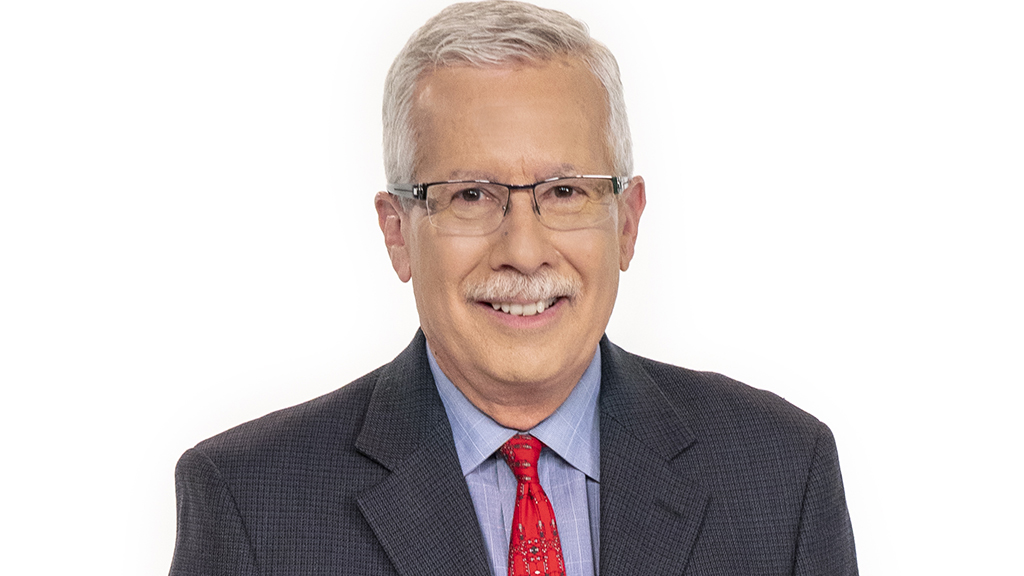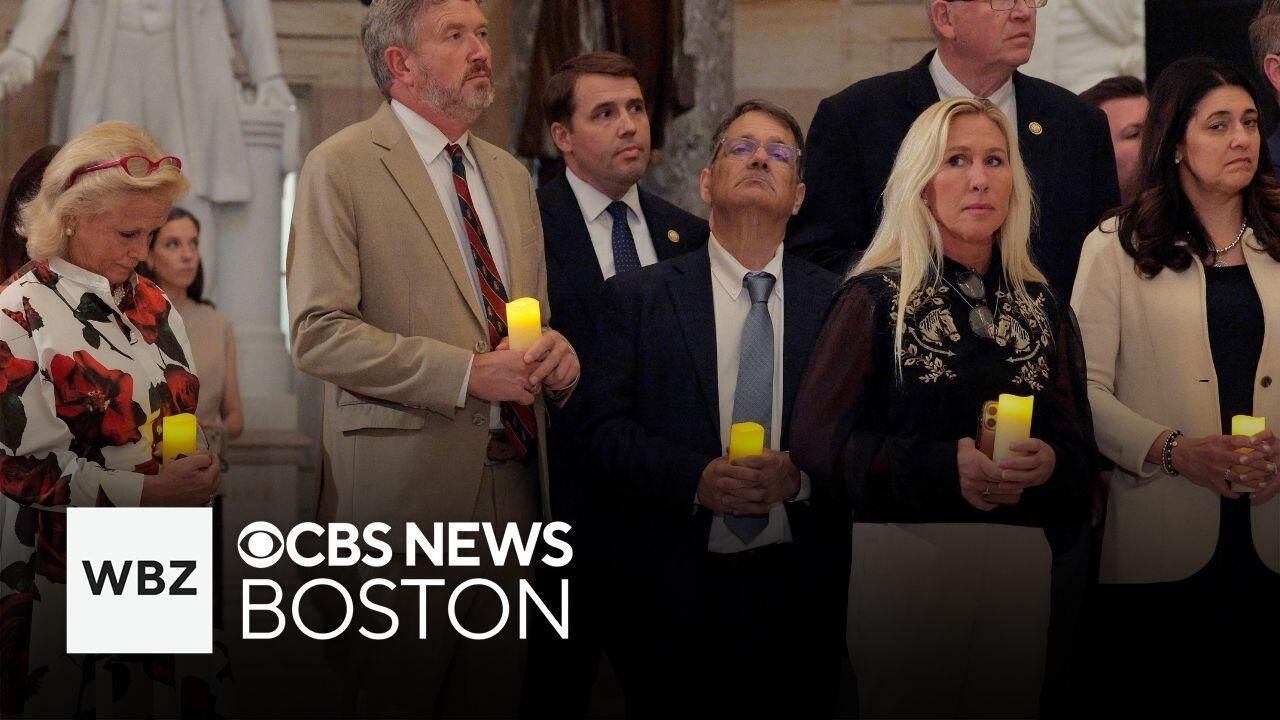Keller: Can politicians work past the bitterness of Charlie Kirk shooting?
The opinions expressed below are Jon Keller's, not those of WBZ-TV, CBS News or Paramount, a Skydance Corporation.
At a memorial service for Charlie Kirk inside the U.S. Capitol Monday night, there were just a handful of Democrats reportedly in attendance. Among them was Congressman Chris Pappas, of New Hampshire, who's running for the Senate in next year's election.
"Not a time to throw gasoline on the fire"
Why did he go?
"This is a time when I think all elected leaders need to be thinking about how we bring the country together and lower the temperature," he said. "This is not a time to inflame divisions."
But in Washington, that's not a universally held opinion.
"Looks like [Kirk's alleged killer] was radicalized over the Internet, and it's radicalized on the left," said President Donald Trump. "He's a left - a lot of problems with the left - and they get protected, and they shouldn't be protected."
Said Pappas: "It's not a time to throw gasoline on the fire as this president is accustomed to doing; it's a time to heal and bring Americans together."
A time of bitter partisanship
But Massachusetts Congressman Seth Moulton said, "If the president is serious about stopping political violence, then maybe he should start by rescinding the pardons for all the domestic terrorists who came to the Capitol on January 6th to kill cops, to kill Speaker Pelosi, to kill Vice President Pence."
"I don't think, you know, that this particular moment is one where we want to be talking about one side versus the other," responded Papas.
But in an era when bitter partisanship and the blame game are the default posture in our political culture, Pappas offered a perspective that neither side seems likely to want to hear.
"Regardless of how you feel about politics, this is something bigger," he said. "This really strikes at the heart of our democracy's ability to function and of our free and open society to be able to continue."
Can politicians stop the blame game?
Is there really anything politicians can do to cool off the blame game?
You may recall how after the 9-11 attacks, then-President George W. Bush spoke at a mosque in Washington, calling for Muslim-Americans to be treated with respect. That was a big difference from the way President Franklin Delano Roosevelt treated Japanese-Americans after Pearl Harbor, and it was credited with helping to avert widespread violence against Muslims.
So yes, political leadership can have an impact if it acts with conviction and puts principle and the common good above power and pandering.
But that's always a big "if."





